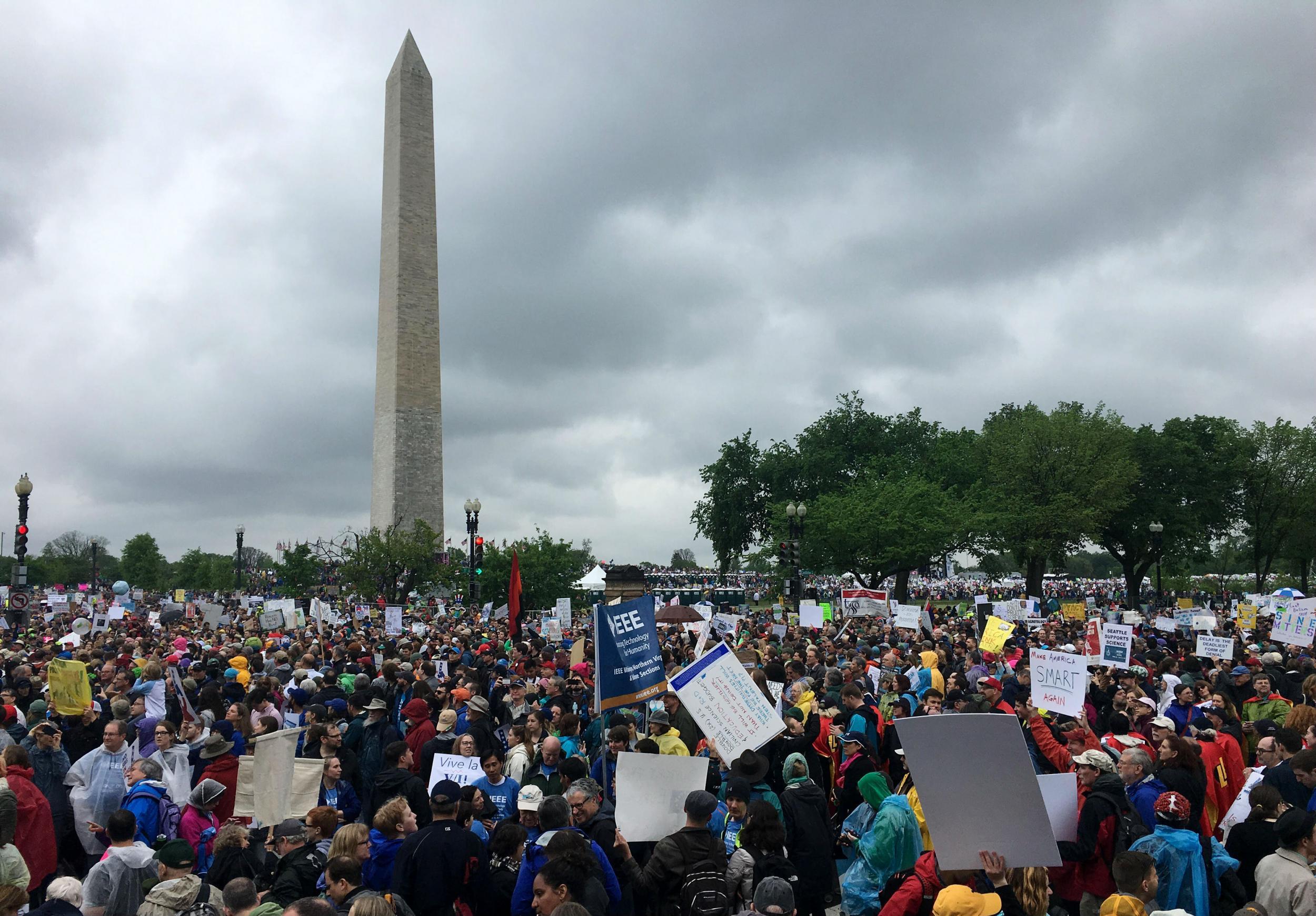March for Science: Thousands march around the world to protest Donald Trump's 'rejection of science'
Protests were held in more than 500 cities

Countless thousands of scientists and their supporters have marched around the world to protest what they say is Donald Trump’s rejection of science.
From Melbourne to Mexico, people poured onto the streets with colourful banners - some of them funny, many of them pointed - to urge the president not to turn his back on empiricism and facts.
“I’m a science professor. My wife teaches history. The current administration has shown complete disregard for facts and the truth,” Peter Lipke, who was among the marchers in New York, told The Independent.
“We’re here to try and keep up the pressure on him.”
The protests, which was inspired by the Women’s March, which took place in cities around the globe the day after Mr Trump’s inauguration, were designed to highlight the way Mr Trump has apparently dismissed science on everything from climate chance to the safety of vaccines. During the election campaign, the New York tycoon said climate change was a hoax invented by China.
The organisers pointed out that since then, Mr Trump has rolled back most of the environmental protections enacted by Barack Obama, introduced to try and cut emissions of carbon dioxide. The Republican president has cut funding to the Environmental Protection Agency and is planning to reduce the grant to the National Institute of Health by 20 per cent.
The marches, held on Earth Day, took place in cities around the world. Probably the largest was held in Washington DC.

“Scientists find it appalling that evidence has been crowded out by ideological assertions,” Rush Holt, a former physicist and Democratic congressman who runs the American Association for the Advancement of Science, told the Associated Press.
“It is not just about Donald Trump, but there is also no question that marchers are saying “when the shoe fits”.”
Michael Mann, a climate scientist who regularly clashes with politicians, said: “We didn't choose to be in this battle, but it has come to the point where we have to fight because the stakes are too great.”
In New York, the protesters marched alongside Central Park, the green lungs of the city used by walkers, joggers and those seeking solace in the often heaving city. As they passed the Trump International Hotel and Tower, many booed and jeered.
Aditi Gupta, a research scientist at Rutgers University, in New Jersey, said it was essential for people to pay attention to science and that good governance depended on it. “I think countries are at their best when science is promoted,” she said.
Shant Stepanian, a software developer, said science had become politicised and that Republicans pushing for smaller government in general, were looking to cut funding for science programmes. “They have not invested in science,” he said.
In Gainesville, Florida, more than 1,000 people stretched through the city's streets.
“Most people don't know how much funding for the sciences supports them in their lives every day. Every medical breakthrough, their food, clothing, our cellphones, our computers, all that is science-based,” said Pati Vitt, a plant scientist at the Chicago Botanic Garden.
"So if we stop funding scientific discoveries now, in 10 years, whatever we might have had won't be, we just won't have it.”
In London, physicists, astronomers, biologists and celebrities gathered for a march past the city's most celebrated research institutions. Supporters carried signs showing images of a double helix and chemical symbols. In Spain, hundreds assembled in Madrid, Barcelona and Seville.
As thousands around the world marched, Mr Trump tweeted that his government was “committed to advancing scientific research that leads to a better understanding of our environment and of environmental risks”.
Join our commenting forum
Join thought-provoking conversations, follow other Independent readers and see their replies
Comments
Bookmark popover
Removed from bookmarks